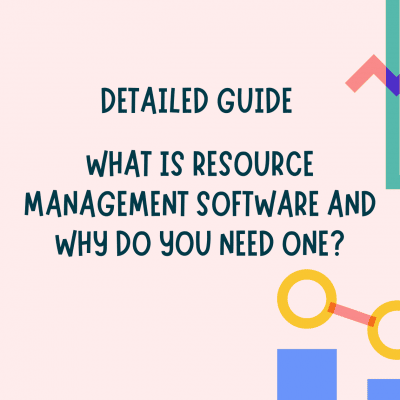How To Choose The Best Payment Processing Software
Selecting the right payment processing software can often feel like navigating a maze. In fact, Forbes Advisor has identified a vast array of gateway options on the market.
This blog post will guide you, step by step, towards making an informed choice that caters efficiently to your business needs. Ready to decode this digital dilemma? Let’s dive in!
What is Payment Processing Software?
Payment processing software, also known as payment gateway software, is a digital tool that facilitates the secure and efficient handling of financial transactions between businesses and their customers.
It serves as the intermediary between various parties involved in a payment process, including banks, credit card companies, and online merchants. This software enables businesses to accept different forms of payments such as credit cards, debit cards, mobile payments, and online transfers.
Its basic features include managing payment information securely, processing transactions in real-time or batch mode, providing fraud protection measures, generating reports and analytics on sales data, and integrating with other business systems for seamless operations.

Definition
Payment processing software is a tool. This helps in taking money online from customers when they buy things. Using this, businesses can sell to people all over the world through the internet or in stores.
Friends, such tools take care of every step in the payment process. They make sure that the customer’s money goes into the business’s bank account safely and fast.
Basic features
Payment processing software has many key features. It lets you take care of credit and debit card payments. This makes it easy for your customers to buy things from you. Payment gateways are a big part of this. They help keep everything secure and fast.
| Feature | Description |
|---|---|
| Fraud protection | This keeps your business safe from harm. |
| Mobile payments | People can pay with their phones. |
| Integration options | You can make the software work with other parts of your business. |
| Analytics | The software tells you how your sales are going. |
| International transactions | You can sell things to people in other countries. |
| E-commerce support | Helps you sell things online. |
| Merchant account setup | Lets you get money from sales. |
| Handling individual sales | Use this for one-time deals or special items. |
| Online and offline sales support | Makes it easy for customers to buy no matter where they are. |
Why Use Payment Processing Software?
Using payment processing software offers several benefits, including automation of the payment process, increased security for financial transactions, and improved reliability. With this software, businesses can streamline their operations and reduce manual tasks associated with handling payments.
Additionally, it provides an added layer of protection against fraud or data breaches by integrating secure payment gateways. By incorporating payment processing software into their systems, businesses can ensure quick and efficient transactions while maintaining a high level of security for both themselves and their customers.

Benefits of automation
Using payment processing software brings many gains. One big gain is automation. Automation has a lot of benefits.
| Benefit | Description |
|---|---|
| Saves time | No need to do tasks by hand anymore. The software does it for you. |
| No errors | People make mistakes sometimes, but machines don’t. |
| Works all day | You can go home and rest, but the software keeps working. |
| Fast and easy work | Tasks that take long to do by hand can be done very fast by the software. |
| More sales | The software keeps customer card details safe from theft. |
| Less cost | With less manual labor, money is saved. |
| Secure data | Software keeps customer card details safe from theft. |
Increased security
When choosing the best payment processing software, one important factor to consider is increased security. With cybercrime on the rise, it’s crucial to protect your customers’ sensitive information and prevent data breaches.
Look for payment processing software that offers robust security features like encryption and tokenization to safeguard transactions. Additionally, opt for software that is compliant with industry standards such as PCI-DSS (Payment Card Industry Data Security Standard) to ensure a secure payment environment.
By prioritizing increased security in your choice of payment processing software, you can instill confidence in your customers and protect your business from potential threats.
Reliability
Reliability is a crucial factor to consider when choosing payment processing software. You want to ensure that the software you choose is dependable and can process transactions smoothly without any glitches or delays.
This is especially important for businesses that rely heavily on online sales and need their payments processed quickly and accurately. Look for payment gateways that have a proven track record of reliability and offer robust infrastructure to handle high volumes of transactions efficiently.
It’s also important to check if the software has built-in redundancy measures, such as backup servers, to minimize downtime in case of technical issues. By prioritizing reliability, you can trust that your customers’ payments will be processed promptly and securely, helping to build trust in your business.
How to Choose the Best Payment Processing Software
When it comes to choosing the best payment processing software, there are several factors to consider that will help you make an informed decision.

Consider your business needs
When choosing the best payment processing software for your business, it is important to consider your specific needs. Think about the type of payments you will be accepting, whether it’s credit cards, debit cards, or mobile payments.
Evaluate how many transactions you expect to process and if you’ll be selling online or offline. Consider if you need analytics to track sales data or fraud protection features for security.
By carefully considering these factors, you can select a payment processing software that aligns with your business requirements and helps streamline your payment processes effectively.
Research and compare options
Doing in-depth research and comparisons can save you from headaches later on. When looking into payment processing software options, you should consider several factors such as transaction fees, customer support availability, and compatibility with your existing systems.
| Software | Transaction Fees | Customer Support Availability | Compatibility |
|---|---|---|---|
| PayPal | Competitive Rates | 24/7 Support | Highly Compatible |
| Stripe | Competitive Rates | Limited Support | Highly Compatible |
| Square | Competitive Rates | 24/7 Support | High Compatibility |
| Gumroad | Competitive Rates | Limited Support | Moderate Compatibility |
Remember, there are also other notable options on the market such as Helcim, Clover, Shopify, Chase, Stax, Payline, and Dharma. It’s essential to assess your business needs before making a decision. If you’re selling both online and offline, Square might be the best option. PayPal is recommended for first-time users, while Stripe is best for those who need accessible analytics. Lastly, Gumroad is excellent for selling individual products.
Look for integrated solutions
When choosing the best payment processing software, it’s important to look for integrated solutions. Integrated solutions are payment processing tools that seamlessly integrate with your existing systems and platforms.
This means that you don’t have to manually transfer data or switch between multiple applications. Instead, everything is connected and automated, making your payment process more efficient and streamlined.
Integrated solutions can save you time and effort by eliminating the need for manual data entry and reducing the chances of errors or discrepancies. They also provide real-time updates and synchronization across different platforms, allowing you to access accurate information at any time.
Additionally, integrated solutions offer a seamless customer experience by providing a consistent interface from start to finish. Your customers will appreciate the smooth flow of their payment journey without having to navigate through multiple systems or face any disruptions.
Assess security features
Payment processing software should prioritize the security of your business transactions. Here are some key security features to consider:
| Key Security Feature | Description |
|---|---|
| Fraud Protection | Look for robust fraud prevention measures, including encryption and secure tokenization, to protect customer payment information. |
| Payment Security | Ensure compliance with industry standards like PCI DSS (Payment Card Industry Data Security Standard) to safeguard cardholder data. |
| Reliable Backups | Choose a solution that regularly backs up transaction data to prevent loss or unauthorized access. |
| Two-Factor Authentication | Opt for software providing an additional layer of security by requiring users to verify their identity through multiple authentication methods (e.g., SMS codes, biometrics). |
| Compliance with Regulations | Check for adherence to legal requirements such as GDPR (General Data Protection Regulation) to protect customer privacy and data rights. |
| Risk Management Tools | Look for features that can identify and mitigate potential risks, including suspicious transactions or chargebacks. |
| Secure Integrations | Ensure secure integration with other systems you use (e.g., e-commerce platforms, accounting software) without compromising data safety. |

Conclusion: Making the Right Choice
To make the right choice when selecting payment processing software, it is crucial to consider your specific business needs, conduct thorough research and comparisons of available options, look for integrated solutions that meet both online and offline selling requirements, and assess the security features offered by different providers.
Additionally, staying informed about new developments in payment processing technology, considering consulting an expert if needed, and ensuring compatibility and ease of use are all essential factors to consider.
By carefully evaluating these aspects, businesses can confidently choose the best payment processing software that fits their unique requirements.
Importance of choosing the right payment processing software
Choosing the right payment processing software is crucial for businesses. It ensures smooth financial transactions, increases customer satisfaction, and protects sensitive information.
With the right software, businesses can automate payment processes, providing convenience for both customers and employees. Additionally, selecting a reliable and secure payment gateway helps safeguard against fraud and data breaches.
By staying informed about new developments in payment processing technology and consulting experts if needed, businesses can make an informed decision that aligns with their specific needs.
Stay informed about new developments
To make sure you’re making the best choice when it comes to payment processing software, it’s important to stay informed about new developments in the industry. Technology is constantly evolving, and new features and options may become available that could benefit your business.
By staying up-to-date with the latest advancements, you can ensure that you’re choosing a software solution that will meet your current needs and adapt to any future changes. Keep an eye on industry news, subscribe to relevant newsletters or blogs, and consider joining professional forums or groups where you can learn from others’ experiences and insights.
This way, you’ll be well-equipped to make an informed decision when selecting payment processing software for your business.
Consider consulting an expert
If you’re feeling unsure about choosing the best payment processing software for your business, it’s a good idea to seek advice from an expert. They can provide valuable insights and guidance based on their knowledge and experience in the industry.
An expert can help assess your specific business needs and recommend the most suitable options. They can also assist in evaluating security features, integration capabilities, and pricing structures to ensure you make an informed decision.
By consulting an expert, you can feel confident that you’re selecting the right payment processing software for your unique requirements.
Ensure compatibility and ease of use.
When choosing the best payment processing software, it’s important to ensure compatibility and ease of use. You want a software that integrates smoothly with your existing systems and is user-friendly for both you and your customers.
Compatibility ensures that transactions can be processed seamlessly, while ease of use makes the payment experience convenient for everyone involved. Look for software that offers intuitive interfaces, clear instructions, and responsive support to minimize any technical difficulties or confusion.
This way, you can provide a seamless payment process without hassle or frustration.




